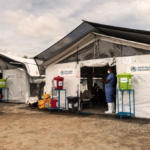By Daniel Abia, P/Harcourt
Nigeria Extractive Industries Transparency Initiative, NEITI, has again exposed the sleaze inherent in the oil and gas industry in the country.
With the capacity to produce 1.249million barrels of oil per day, Nigeria prides itself as the chief producer of oil in Africa. It surpasses Libya and Angola in a comparative chart.
Unfortunately, no other country in the oilecosystem has ever lost so much crude to avoidable criminal tendencies like Nigeria due mainly to carelessness or sheer lack of political will to change the narrative. It presupposes that the country’s inability to feed its 200 million hungry population can be attributed to the loss of millions of barrels of oil to leakages, pipeline vandalization among others.
Incidentally, these tendencies are consciously aided and abetted by the same international oil companies, IOCs, who explore and exploit the oil aided by government protégés such as security agents and their representatives in the oil space.
It is even more acerbic that with about 200 trillion cubic feet, Nigeria has the largest gas reserve in Africa and 9th largest in the world, yet, the country is far from good road network, functional hospitals, quality education and job creation for its citizens.
The above sad tale sparked the response of Dr. Orji Ogbonnaya Orji, Executive Secretary of NEITI who painted the grim picture of the country’s oil and gas infrastructure and proffered a commensurate solution to the country’s extractive industry.
In a keynote address tagged “pipeline security, oil theft and the implications for economic growth” at the Nigeria International Pipeline and security conference at Abuja penultimate week, he said NEITI’s exposure to information and data that speak clearly to the facts that strengthening security around oil and gas pipelines was key to the ongoing search for solutions to crude oil theft.
Accordingly, oil theft and losses in Nigeria have become a national emergency that poses serious threat to oil exploration and exploitation with huge negative consequences on economic growth, business prospects and profit earnings by oil companies.
Orji noted that from NEITI’s 2021 Oil and Gas Industry report released in September, the sector accounted for 72.26% of Nigeria’s total export and Government’s foreign exchange, 40.55% of government revenue, and provided 19,171 jobs.
This figure is a far cry considering the population of 200 million people with thousands of fresh graduates being churned out every year from the universities across the states.
As a member of the Special Investigative Panel on Oil Theft and Losses, NEITI said it was able to figure out that oil theft is perpetrated mainly through pipeline clamping, Illegal Connections (ICs) on major pipelines, exploitation of abandoned oil wellheads, pipeline breakages and vandalism of key national assets to illegally siphoning of crude into waiting vessels stationed in strategic terminals.
“This criminal exploits take place most times in atmosphere of communities’ complicity and conspiracy of silence”, Dr. Orji said. This position however prompted the Executive Chairman Board of Trustees of Community Development Committees, CDC, of Niger Delta Oil and Gas Producing Areas, Engineer Joseph Ambakaderimo to seek an urgent collaboration with NEITI to carry out sensitization advocacy to the oil bearing communities.
As a co- organizer of the just concluded Nigerian International Pipelines Technology and Security conference, CDC said collaboration with NEITI to carry out advocacy involving the oil producing communities in a town hall format for the purposes of enlightenment on the dangers of environmental impact and the effect of Oil theft on the economic wellbeing of the country and its citizens, would go along way to salvage the country.
It is a sad narrative that despite the strategic contributions of NEITI, the country is yet to derive optimal benefits from its oil and gas resources due to oil theft and losses through pipeline vandalism, pipeline integrity compromise, outright sabotage, and general
insecurity in the Niger Delta region.
It is most disheartening that despite the increasing oil theft, the Nigerian government has never prosecuted those involved in the heinous crime of sabotaging the nation’s economy. The highest it doesis to go after individual urchins leaving behind their bosses in the Army, Navy, Civil Defense and influential politicians among others.
Empirical data made available by NEITI indicates that oil theft and losses in Nigeria between 2009 and 2020 stands at 619.7million barrels of crude which is valued at S$46.16billion or N16.25 trillion. This explains why Nigeria relies more on external borrowing just to sustain the economy and cater for its citizens.
In addition, Nigeria lost 4.2 billion litres of petroleum products from refineries, valued at US$1.84 billion at the rate of One Hundred and Forty Thousand Barrels per day, from 2009 to 2018.
“The total value of crude losses between 2009 and 2020 is higher than the size of the country’s foreign reserves and almost ten times Nigeria’s oil savings in Excess Crude Account”, the report clarifies.
NEITI also disclosed that in the last 5 years, 2017 to 2021, Nigeria recorded 7,143 cases of pipeline breakages and deliberate vandalization resulting in crude theft and product losses of 208.639 million barrels valued at $12.74 million or N4.325 trillion. The reports further revealed that during the same period, Nigeria spent N471. 493 billion to either repair or maintain pipelines.
This presupposes that the economy cannot grow in an atmosphere of oil theft, pipeline vandalism, and general insecurity in the oil producing communities.
To salvage this unfortunate scenario therefore, NEITI recommended among others; reconstitution of the Presidential Steering Committee on Implementation of the Petrol Industry Act with Industry Experts and key relevant agencies as members, Tackling Oil theft, Crude losses and Pipeline Vandalization.
It also recommended developing a Gas Utilization Policy with Linkages to Nigeria’s Energy Transition Plan, Fast-tracking the repairs of government-owned refineries with adequate measures to secure the pipelines and the business environs for easy access, product delivery and evacuation.
The extractive industry called for the strengthening of Nigeria’s membership of the 57 member countries of the global EITI and NEITI to support the reforms with knowledge, independent information, and data.
Apart from its huge crude oil deposit, Nigeria is a major player in gas business not just in Africa but the world at large. It is unfortunate that in spite of its abundant oil and gas deposits, Nigeria still remains at the lowest rung of the economic ladder.
The country is unable to feed its population while relying majorly on going cap in hands borrowing to bolster a misfit economy consciously depleted by privileged men in power. Joseph Ambakaderimo, the CDC, Board Chairman explained that Community involvement in oil theft is due to long abandonment of the communities over the years by all of the agencies of government like the NDDC, Ministry of Niger Delta Development and others.
“There have been overtime mismanaged resources that hitherto would have been deployed to the development of these communities.
Therefore we must hold all of these agencies to account for the resources that have accrued to them and hold them responsible for Oil theft in the region”, he recommended. “In addition, the CDC is calling on government to also collaborate with it and provide all necessary support to the CDC to enable our members take control of the security of the oil and gas pipelines crisscrossing our communities rather than this humongous expenditure to other entities that has not provided any success”.
He said that CDC is very well positioned in every Community that Produces oil and gas in the Niger Delta region with a mandate to develop and provide security to their communities.
“Government would find it difficult to provide basic amenities that will shore up the living standard of the people if this worrisome trend of Oil theft is not curbed. The communities must be made to understand that they cannot be part of a system that will deprive them from developing their areas. Therefore it is imperative that we must embark on this advocacy journey with the CDC taking the lead”.
Ambakaderimo disclosed that the same collaboration is already taking place with the House Committee on Upstream and the special House committee on Oil theft and security chairman Honourable Alhassan Doguwa, who represented the Honourable Speaker of the Federal House of Representatives, Rt. Honourable Tajudeen Abbas at the conference.
The post How Nigeria lost over N16trn to Oil Theft in 11 Years appeared first on Vanguard News.





